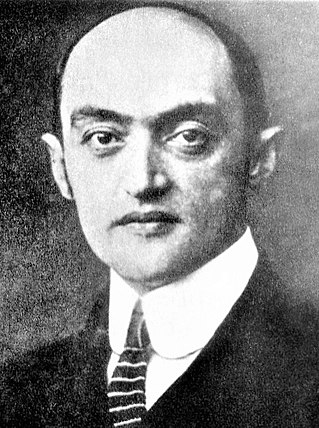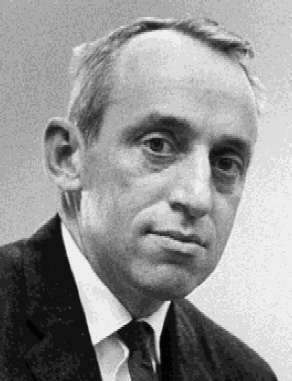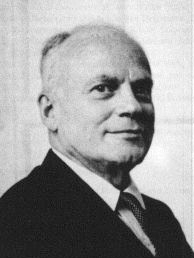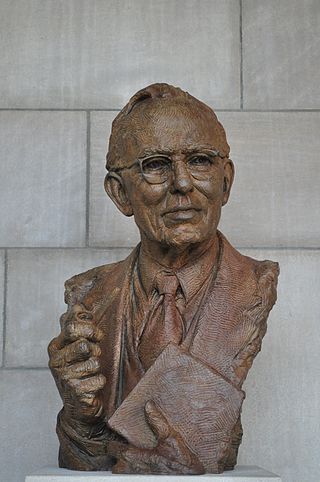
Joseph Alois Schumpeter was an Austrian political economist. He served briefly as Finance Minister of Austria in 1919. In 1932, he emigrated to the United States to become a professor at Harvard University, where he remained until the end of his career, and in 1939 obtained American citizenship.

James Tobin was an American economist who served on the Council of Economic Advisers and consulted with the Board of Governors of the Federal Reserve System, and taught at Harvard and Yale Universities. He contributed to the development of key ideas in the Keynesian economics of his generation and advocated government intervention in particular to stabilize output and avoid recessions. His academic work included pioneering contributions to the study of investment, monetary and fiscal policy and financial markets. He also proposed an econometric model for censored dependent variables, the well-known tobit model.

Gary Stanley Becker was an American economist who received the 1992 Nobel Memorial Prize in Economic Sciences. He was a professor of economics and sociology at the University of Chicago, and was a leader of the third generation of the Chicago school of economics.

Kenneth Joseph Arrow was an American economist, mathematician, writer, and political theorist. Along with John Hicks, he won the Nobel Memorial Prize in Economic Sciences in 1972.
In the social sciences, methodological individualism is a framework that describes social phenomena as a consequence of subjective personal motivations by individual actors. Class or group dynamics, which operate on systemic explanations, are deemed illusory, and, thus, rejected or de-prioritized. With its bottom-up micro-level approach, methodological individualism is often contrasted with methodological holism, a top-down macro-level approach, and methodological pluralism.

Law and economics, or economic analysis of law, is the application of microeconomic theory to the analysis of law. The field emerged in the United States during the early 1960s, primarily from the work of scholars from the Chicago school of economics such as Aaron Director, George Stigler, and Ronald Coase. The field uses economics concepts to explain the effects of laws, to assess which legal rules are economically efficient, and to predict which legal rules will be promulgated. There are two major branches of law and economics; one based on the application of the methods and theories of neoclassical economics to the positive and normative analysis of the law, and a second branch which focuses on an institutional analysis of law and legal institutions, with a broader focus on economic, political, and social outcomes, and overlapping with analyses of the institutions of politics and governance.

Jacob Viner was a Canadian economist and is considered with Frank Knight and Henry Simons to be one of the "inspiring" mentors of the early Chicago school of economics in the 1930s: he was one of the leading figures of the Chicago faculty. Paul Samuelson named Viner as one of the several "American saints in economics" born after 1860. He was an important figure in the field of political economy.

Gérard Debreu was a French-born economist and mathematician. Best known as a professor of economics at the University of California, Berkeley, where he began work in 1962, he won the 1983 Nobel Memorial Prize in Economic Sciences.
Agricultural economics is an applied field of economics concerned with the application of economic theory in optimizing the production and distribution of food and fiber products. Agricultural economics began as a branch of economics that specifically dealt with land usage. It focused on maximizing the crop yield while maintaining a good soil ecosystem. Throughout the 20th century the discipline expanded and the current scope of the discipline is much broader. Agricultural economics today includes a variety of applied areas, having considerable overlap with conventional economics. Agricultural economists have made substantial contributions to research in economics, econometrics, development economics, and environmental economics. Agricultural economics influences food policy, agricultural policy, and environmental policy.

John Rogers Commons was an American institutional economist, Georgist, progressive and labor historian at the University of Wisconsin–Madison.

William Jack Baumol was an American economist. He was a professor of economics at New York University, Academic Director of the Berkley Center for Entrepreneurship and Innovation, and Professor Emeritus at Princeton University. He was a prolific author of more than eighty books and several hundred journal articles. He is the namesake of the Baumol effect.

Theodore William Schultz was an American agricultural economist and chairman of the University of Chicago Department of Economics. Schultz rose to national prominence after winning the 1979 Nobel Memorial Prize in Economic Sciences.
Sir Arthur Lyon Bowley, FBA was an English statistician and economist who worked on economic statistics and pioneered the use of sampling techniques in social surveys.

The American Economic Association (AEA) is a learned society in the field of economics. It publishes several peer-reviewed journals. There are some 23,000 members.
The Economic Journal is a peer-reviewed academic journal of economics published on behalf of the Royal Economic Society by Oxford University Press. The journal was established in 1891 and publishes papers from all areas of economics.The editor-in-chief is Francesco Lippi.

Alvin Saunders Johnson was an American economist and a co-founder and first director of The New School.

Jacob Marschak was an American economist.
Marc Leon Nerlove is an American agricultural economist and econometrician and a distinguished university professor emeritus in agricultural and resource economics at the University of Maryland. He was awarded the John Bates Clark Medal from the American Economic Association (AEA) in 1969 and held appointments at eight different universities from 1958–2016. The Clark Medal is awarded to an economist under the age of 40 who “is judged to have made the most significant contribution to economic thought and knowledge”, and when the AEA appointed him as a distinguished fellow in 2012, they cited his development of widely used econometric methods across a range of subjects, including supply and demand, time series analysis, production functions, panel analysis, and family demography.
Alfred William "Bob" Coats was a British economist, economic historian and historian of economic thought. He made important contributions to the study of the history, methodology, sociology, professionalisation and internationalisation of economics, and was for many decades a central figure in professional societies in these specialised fields.

The Encyclopaedia of the Social Sciences is a specialized fifteen-volume Encyclopedia first published in 1930 and last published in 1967. It was envisaged in the 1920s by scholars working in disciplines which increasingly were coming to be known as "human sciences" or "social sciences". The goal was to create a comprehensive synthesis of the study of human affairs as undertaken by practitioners of all fields involved in such study. The parameters of what would come to be known as "social science" were in many ways initially established and defined by this publication.














